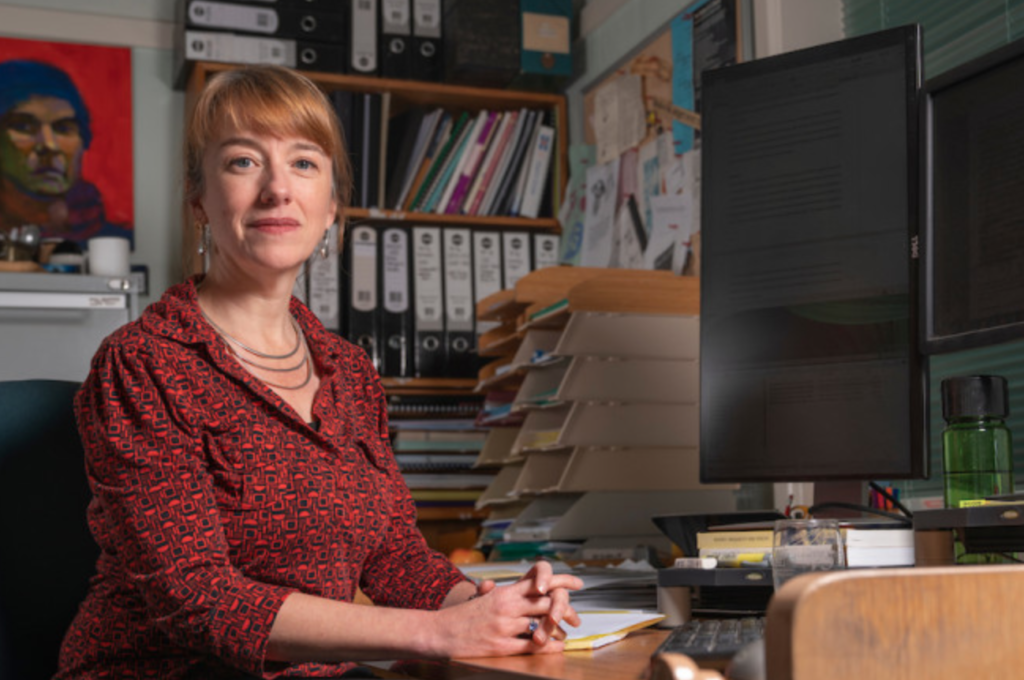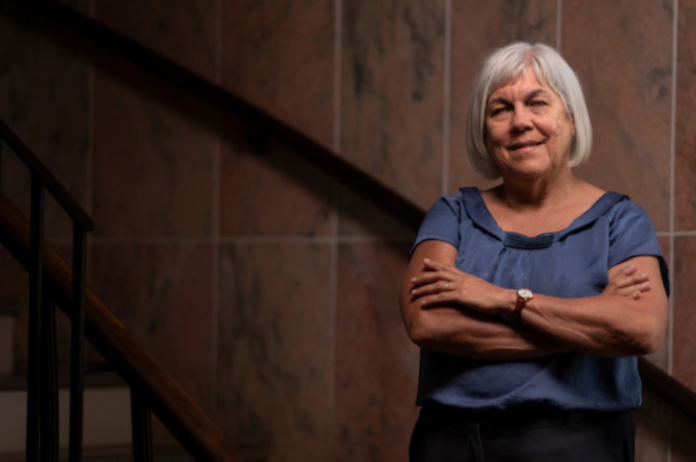An Indigenous doctor who has worked on reducing Aboriginal and Torres Strait Islander contact with the criminal justice system has received one of Australia’s highest honours.
Dr Guthrie (pictured), a descendant of the Wiradjuri people of Western NSW, was one of three academics from The Australian National University (ANU) appointed a member of the Order of Australia (AM) in this year’s Australian honours.
Epidemiologist Professor Emily Banks and Indonesian expert Associate Professor Gregory Fealy were honoured for their outstanding achievement in their research areas.
Dr Guthrie, who has worked on Aboriginal and Torres Strait Islander health outcomes for over 30 years, said it was “a wonderful honour to be recognised”.
Dr Guthrie’s work has led the way in crafting innovative evidence-based approaches to criminal justice that prioritise the health of Aboriginal and Torres Strait Islander people and their communities.
The epidemiologist recently led a justice reinvestment project in her hometown of Cowra which redirects funds from prisons to holistic initiatives and services to address the causes of offending and keep those at risk of incarceration from coming into contact with the criminal justice system.
“Many talented and dedicated people contribute to my work and deserve to be celebrated, including my mentors, collaborators, funders, and the Cowra community who are working with us to inform and advance justice reinvestment research,” Dr Guthrie said.
“The Cowra community have done the hard work in developing an understanding of justice reinvestment and how it will help them.
“I hope this award helps to push our efforts along faster.”

Fellow ANU Epidemiologist Professor Emily Banks, from The Research School of Population Health (RSPH) said she was “immensely honoured” to be recognised for her exceptional contribution to medical research and education.
Professor Banks’ collaborative research on breast cancer and menopausal hormone replacement therapy (HRT) contributed to shifts in prescription policy in the United Kingdom and Australia and reductions in cancer rates.
“Public health and epidemiology are the ultimate team sports,” Professor Banks said.
“They include the millions of people willing to share information about their health, mentors, funders and institutions who have supported me, and my colleagues and tireless team members.”
Professor Banks’ tobacco research has provided evidence to support significant action including legislation to increase tobacco tax rates, better information for people trying to quit, and anti-smoking campaigns.
Professor Banks and her team have also been an influential public health research group for Australia’s COVID-19 response.
They provided evidence and design for Australia and New Zealand’s COVID-19 surveillance systems, and spearheaded amendments to contact tracing methods.
“I think people have a whole new appreciation of public health due to COVID-19,” Professor Banks said.
“Done properly, public health has protected the whole population, including the medical frontline. These are unique skills, and it’s not intuitive – these are skills that are developed over a lifetime.”
Associate Professor Greg Fealy said his Australia Day honour was “completely unexpected” and a “wonderful surprise”.
“I’ve done work on Indonesia and Australia-Indonesia relations because I’ve had a great passion for understanding Indonesia and for helping to ensure the two countries have the best possible relationship, so it’s very pleasing to have this work recognised in this way,” he said.
“Recognition for anyone in the Indonesia studies field – this particular year it’s me – is an indication that people in the broader community are appreciative of these efforts and the relationship between the two countries is valued, and knowledge of Indonesia is valued.
“The ANU is one of the world’s leading centres for the study of Indonesia and this award is partly a reflection of the excellent colleagues I have at ANU and the wonderful environment that has been created here for the intensive study of Indonesia.
“This award reflects really well on the University’s achievements in Indonesian studies for more than 70 years.”


